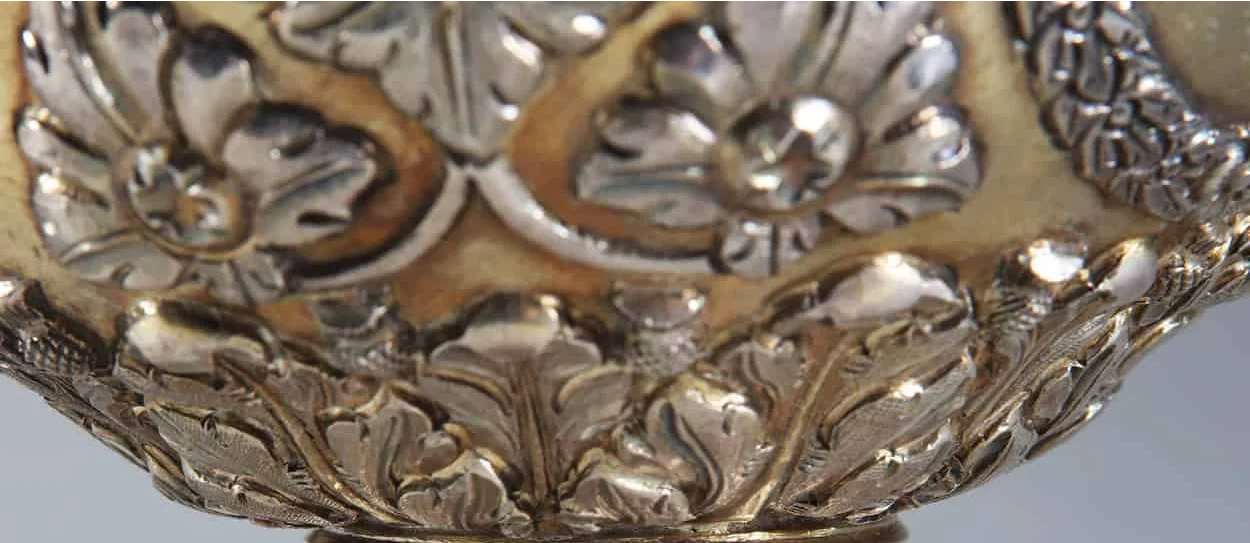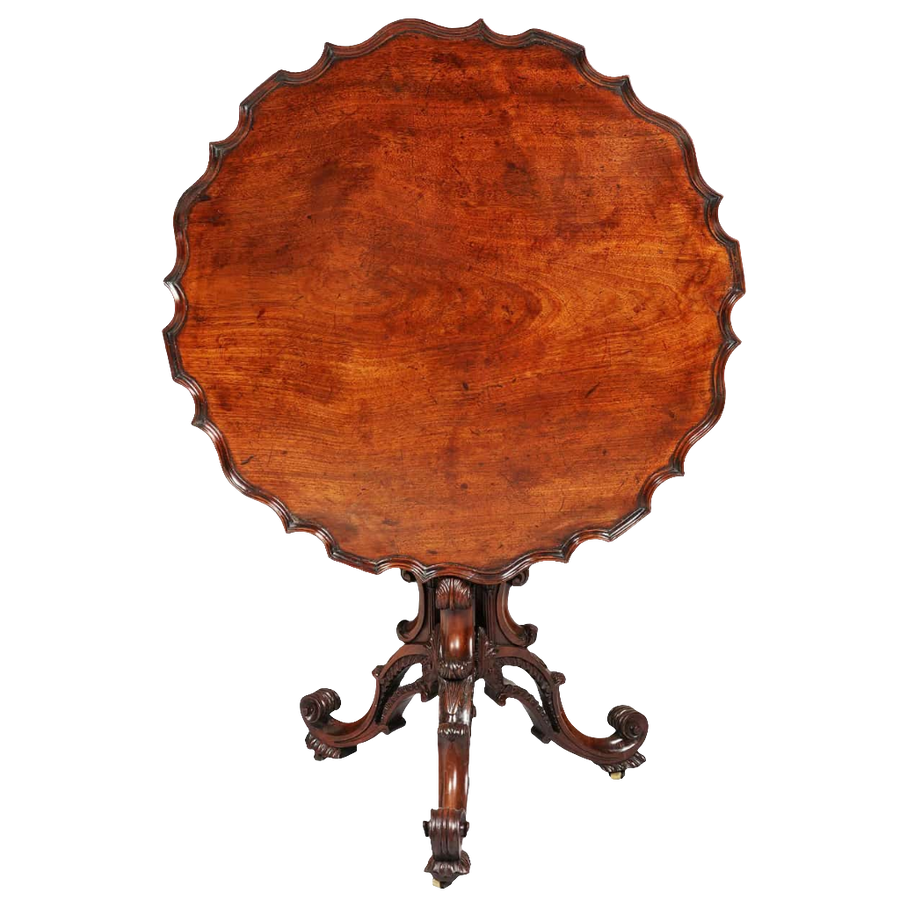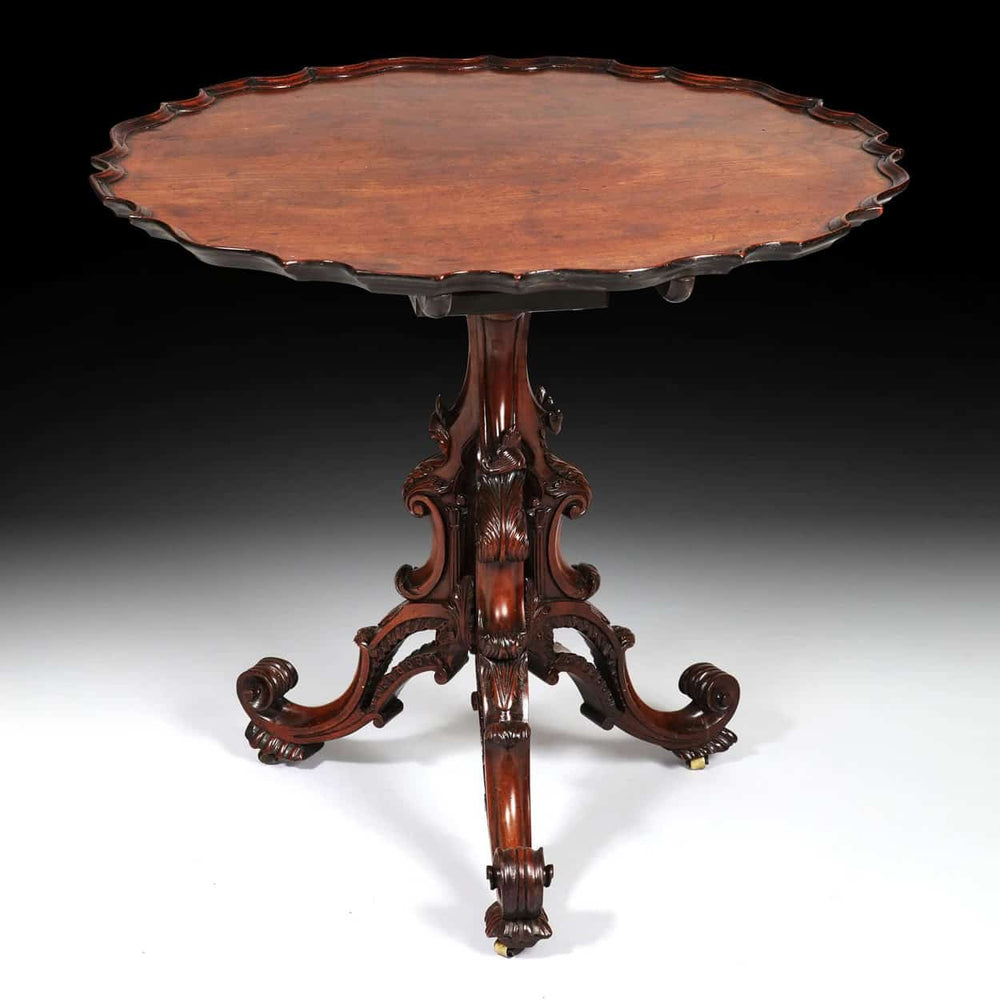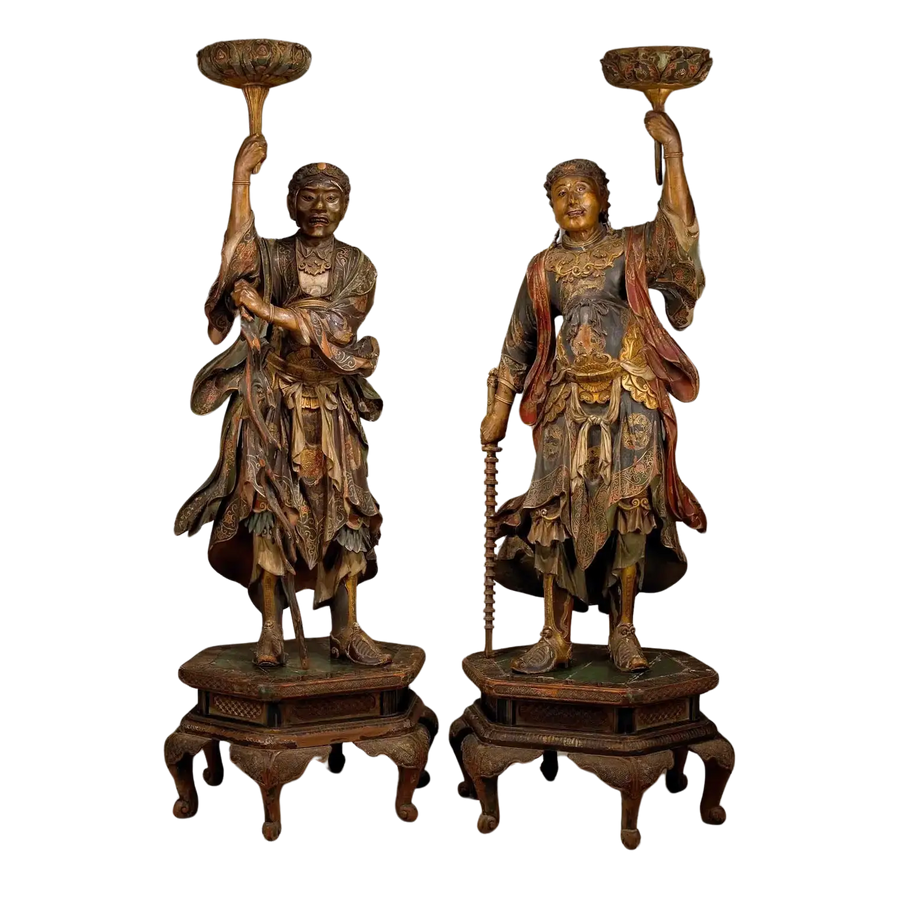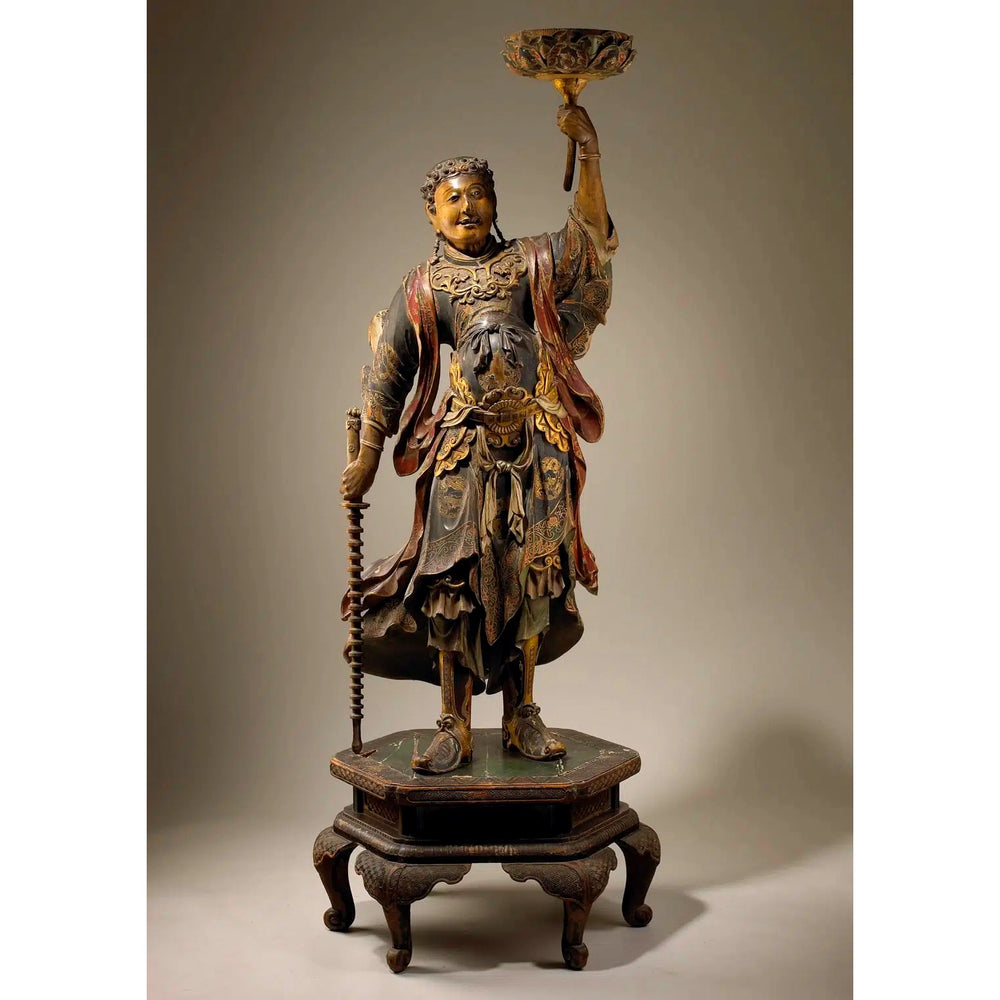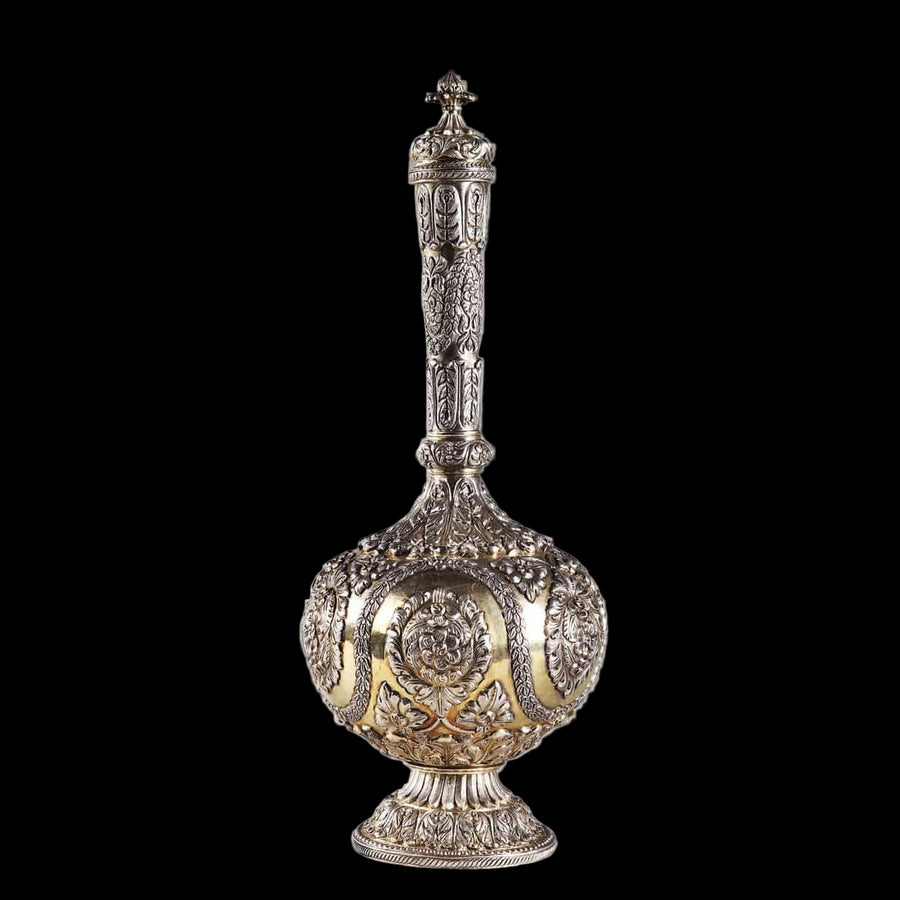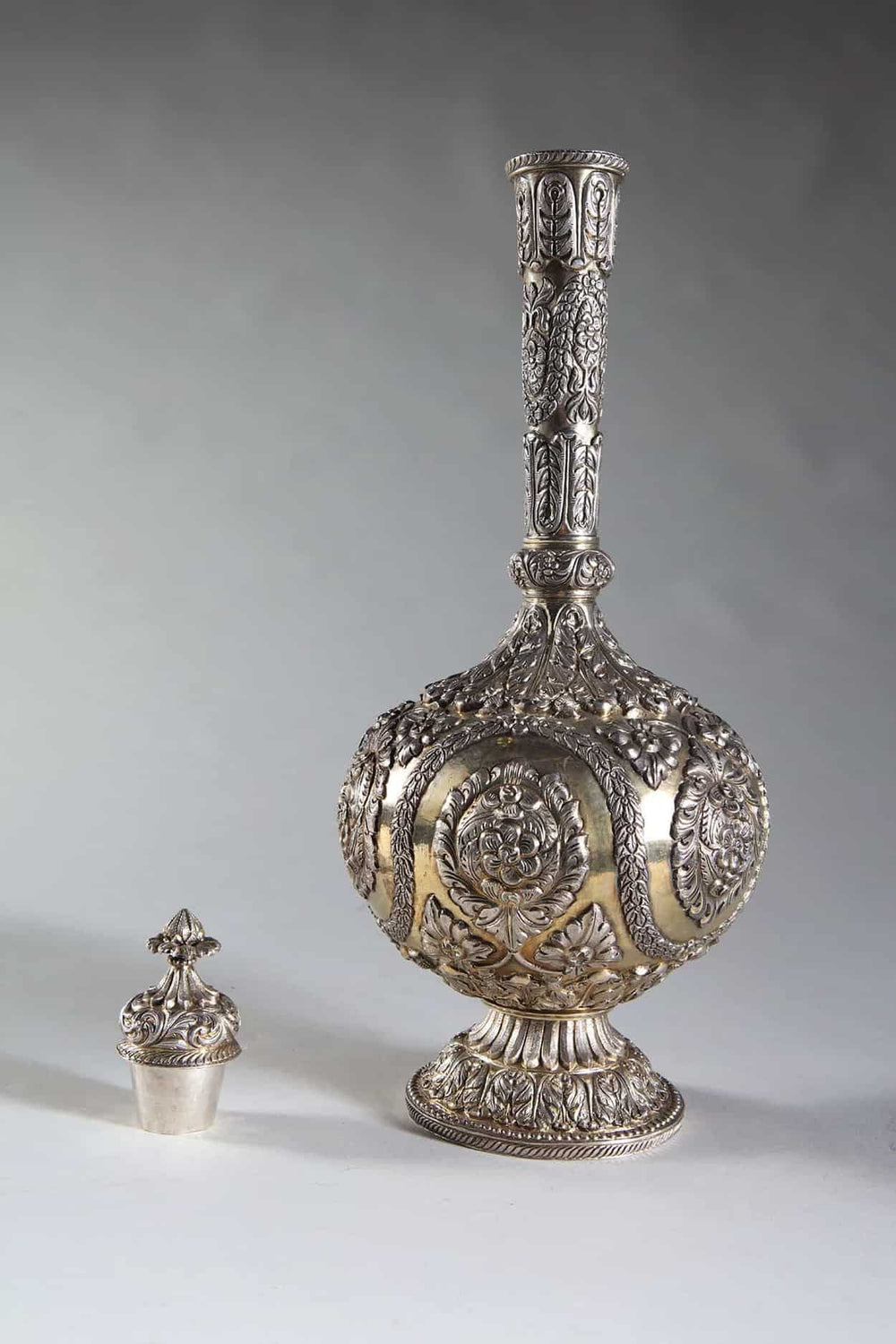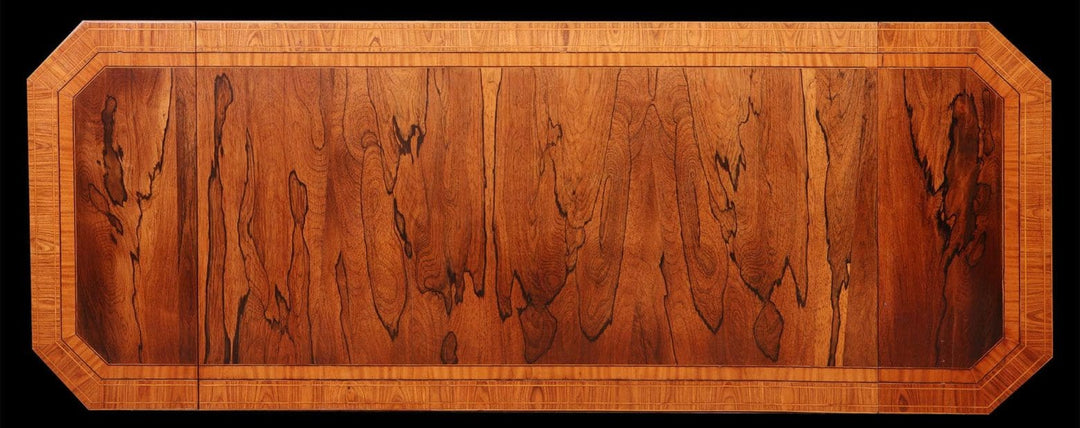To the north of Bombay (now Mumbai), Kutch rose to prominence in the late 19th century as a leading centre for silverware. Renowned for its fine craftsmanship and intricate designs, Kutchi silver captured the imagination of both local patrons and international collectors, with significant exports to England, its colonies, and the United States.
The Art of Kutchi Silver
Kutch’s reputation rested on the skill of its artisans, who inherited centuries of metalworking traditions. Their work combined exceptional technical ability with a deep cultural heritage, drawing on local motifs and patterns that gave each piece its distinctive character. Scrolled foliage, repoussé decoration, and dense ornamental surfaces became hallmarks of the style.
Colonial Patronage and Global Markets
During the British Raj, demand for Indian craftsmanship surged. The colonial elite admired the richness of Kutchi silver and commissioned elaborate pieces—many of which travelled back to England or onward to other colonies. The appeal soon extended across the Atlantic, with American collectors embracing the artistry of these exotic creations.
Economic and Cultural Impact
The silver trade brought prosperity to Kutch, engaging entire families and communities in production. Though industrialisation and the decline of colonial trade posed challenges, artisans continued to pass on their skills, ensuring that the legacy of Kutchi silver endured.
A Lasting Legacy
Today, Kutchi silverware remains highly prized by collectors for its refined detail, cultural symbolism, and historic significance. Each surviving piece tells the story of a region where heritage and craftsmanship combined to create objects of lasting beauty.
To the north of Bombay (now Mumbai), Kutch rose to prominence in the late 19th century as a leading centre for silverware. Renowned for its fine craftsmanship and intricate designs, Kutchi silver captured the imagination of both local patrons and international collectors, with significant exports to England, its colonies, and the United States.
The Art of Kutchi Silver
Kutch’s reputation rested on the skill of its artisans, who inherited centuries of metalworking traditions. Their work combined exceptional technical ability with a deep cultural heritage, drawing on local motifs and patterns that gave each piece its distinctive character. Scrolled foliage, repoussé decoration, and dense ornamental surfaces became hallmarks of the style.
Colonial Patronage and Global Markets
During the British Raj, demand for Indian craftsmanship surged. The colonial elite admired the richness of Kutchi silver and commissioned elaborate pieces—many of which travelled back to England or onward to other colonies. The appeal soon extended across the Atlantic, with American collectors embracing the artistry of these exotic creations.
Economic and Cultural Impact
The silver trade brought prosperity to Kutch, engaging entire families and communities in production. Though industrialisation and the decline of colonial trade posed challenges, artisans continued to pass on their skills, ensuring that the legacy of Kutchi silver endured.
A Lasting Legacy
Today, Kutchi silverware remains highly prized by collectors for its refined detail, cultural symbolism, and historic significance. Each surviving piece tells the story of a region where heritage and craftsmanship combined to create objects of lasting beauty.
Read More
